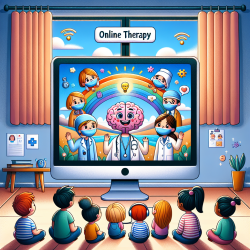Introduction
In the realm of pediatric health, concussions remain a significant concern, especially in middle school settings where sports and recreational activities are prevalent. A recent study titled Factors associated with concussion-symptom knowledge and attitudes toward concussion care seeking in a national survey of parents of middle-school children in the US sheds light on the crucial role parents play in concussion management. This blog aims to translate these findings into actionable insights for practitioners, enhancing their ability to support children effectively.
Understanding the Study
The study surveyed 1,224 parents of middle school children across the United States to assess their knowledge of concussion symptoms and their attitudes towards seeking care. The results revealed that while parents generally had high knowledge scores, there were notable gaps in recognizing emotional symptoms like sadness and anxiety as indicators of concussion. Additionally, parents expressed challenges in the ease of seeking concussion care, highlighting potential barriers in accessing timely medical support.
Key Findings and Implications for Practitioners
- Knowledge Gaps: Practitioners should be aware that parents might not fully recognize emotional symptoms as part of concussion indicators. This calls for educational initiatives that emphasize these less obvious symptoms.
- Attitude Towards Care: While parents generally have a positive attitude towards seeking care, the perceived difficulty in accessing care suggests a need for practitioners to facilitate easier access to resources and support.
- Demographic Variations: The study found that knowledge and attitudes varied significantly with demographic factors such as age, gender, and ethnicity. Tailored educational programs that consider these demographic differences can enhance the effectiveness of concussion management strategies.
Actionable Steps for Practitioners
Based on the study's findings, practitioners can take several steps to improve concussion care outcomes:
- Enhance Educational Outreach: Develop targeted educational materials that address the specific knowledge gaps identified in the study. Utilize multimedia resources to cater to different learning preferences.
- Facilitate Access to Care: Work with schools and community organizations to streamline the process of seeking medical care for concussions. This could involve setting up partnerships with local healthcare providers or creating informational sessions for parents.
- Leverage Technology: Utilize platforms like TinyEYE to provide remote consultation and therapy services, making it easier for parents to access expert advice and support without logistical barriers.
Encouraging Further Research
While this study provides valuable insights, there is a continuous need for research to explore the evolving dynamics of concussion management in middle school settings. Practitioners are encouraged to engage in research initiatives or collaborate with academic institutions to further investigate effective strategies for concussion prevention and care.
To read the original research paper, please follow this link: Factors associated with concussion-symptom knowledge and attitudes toward concussion care seeking in a national survey of parents of middle-school children in the US.










